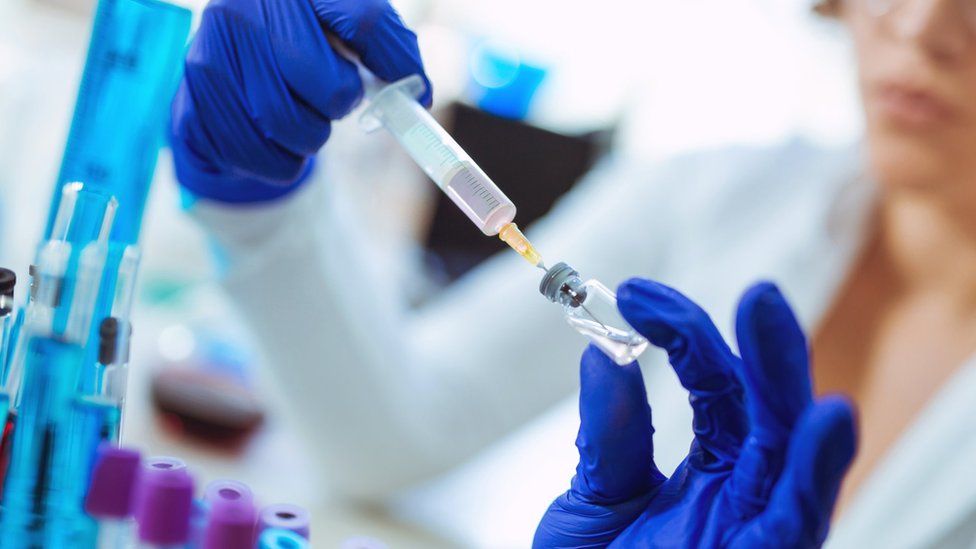ARTICLE AD BOX
 Image source, Getty Images
Image source, Getty Images
By Michelle Roberts
Digital health editor
The UK is embarking on an ambitious plan to accelerate research into mRNA cancer vaccines, with German pharmaceutical company BioNTech.
Following the success of Covid vaccines using the same messenger-ribonucleic-acid technology, scientists now want to conduct more trials in cancer patients.
And they are hoping to provide this personalised type of treatment to about 10,000 patients by 2030.
Britain is the first nation to sign up to such a partnership.
BioNTech has several international cancer-vaccine trials in progress but says the UK is ideally placed as it has a great track record and infrastructure for medical research.
BioNTech founders described their cancer research to the BBC in October
Some of the patients in the trials will have cancer that has already been treated and the vaccine will hopefully prevent it returning.
Others will have advanced, spreading cancers the vaccine might help shrink and control.
Unlike chemotherapy, which attacks lots of different cells as well as the cancer, the mRNA treatment is tailor-made for the individual and presents the immune system with bits of genetic code from the specific cancer so it can attack only the tumour.
This makes it more expensive to produce. BioNTech says it will be affordable for healthcare systems. But much more work is needed to determine whether the cost can be justified for the NHS. Being commercially sensitive, the details of the partnership between the Government and BioNTech have not been disclosed.
'Wanted poster'
BioNTech co-founder Prof Ozlem Tureci told BBC News: "The UK is a great partner for this endeavour.
"We have seen in the Covid-19 pandemic with the fast approval of vaccines in the UK that the regulatory authority is exceptional.
"And then there is the genomic-analysis capabilities. The UK is one of the leading nations in that regard.
"The concept here is to use specific molecular features in individual cancers of patients to encode them into the mRNA vaccines and to train the immune system to attack."
It was like putting up a bounty or wanted poster, she said, alerting the body to be on the lookout and fight.
And because cancer is a complex disease, patients might need several doses to keep the immune system on guard.
Health and Social Care Secretary, Steve Barclay said: "Once cancer is detected, we need to ensure the best possible treatments are available as soon as possible, including for breast, lung and pancreatic cancer.
"BioNTech helped lead the world on a Covid-19 vaccine and they share our commitment to scientific advancement.
"This partnership will mean that, from as early as September, our patients will be among the first to participate in trials and tests to provide targeted, personalised and precision treatments using transformative new therapies to both treat the existing cancer and help stop it returning."
Cancer Research UK welcomed the news, but said delays in diagnosis and treatment mean staff are increasingly overstretched and may be unable to find the time needed to set up clinical trials - if this continued it would mean slower progress towards new treatments.
CRUK spokesman Dr Iain Foulkes said: "mRNA vaccines are one of the most exciting research developments to come out of the pandemic, and there are strong hints that they could become powerful treatment options for cancer.
"Getting there will require lots more research."

 2 years ago
57
2 years ago
57








 English (US) ·
English (US) ·